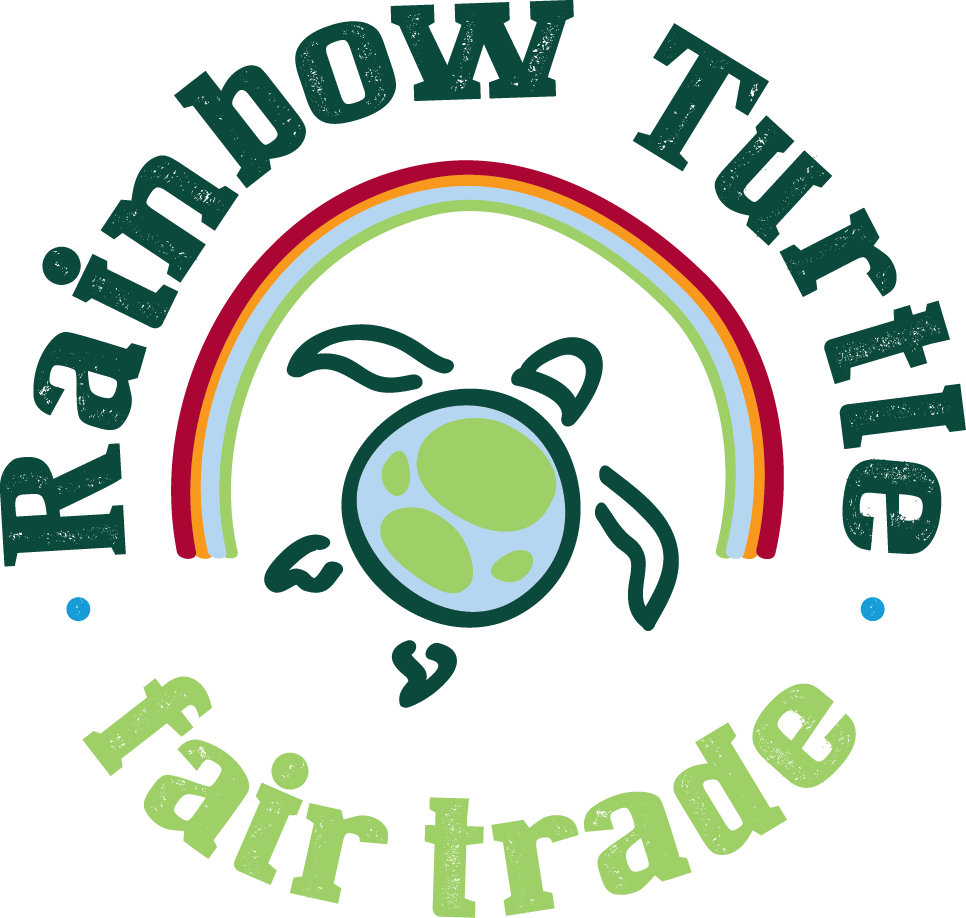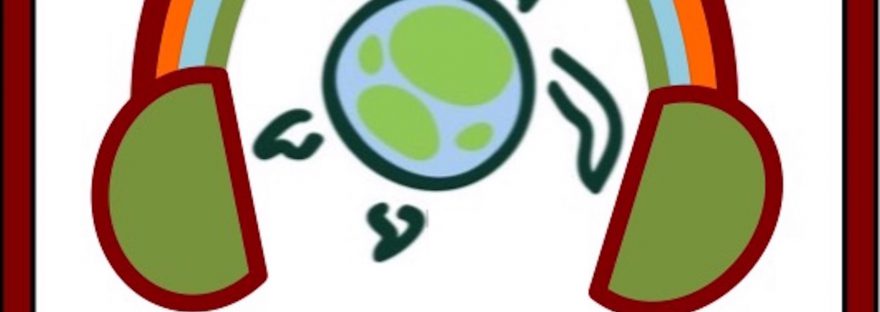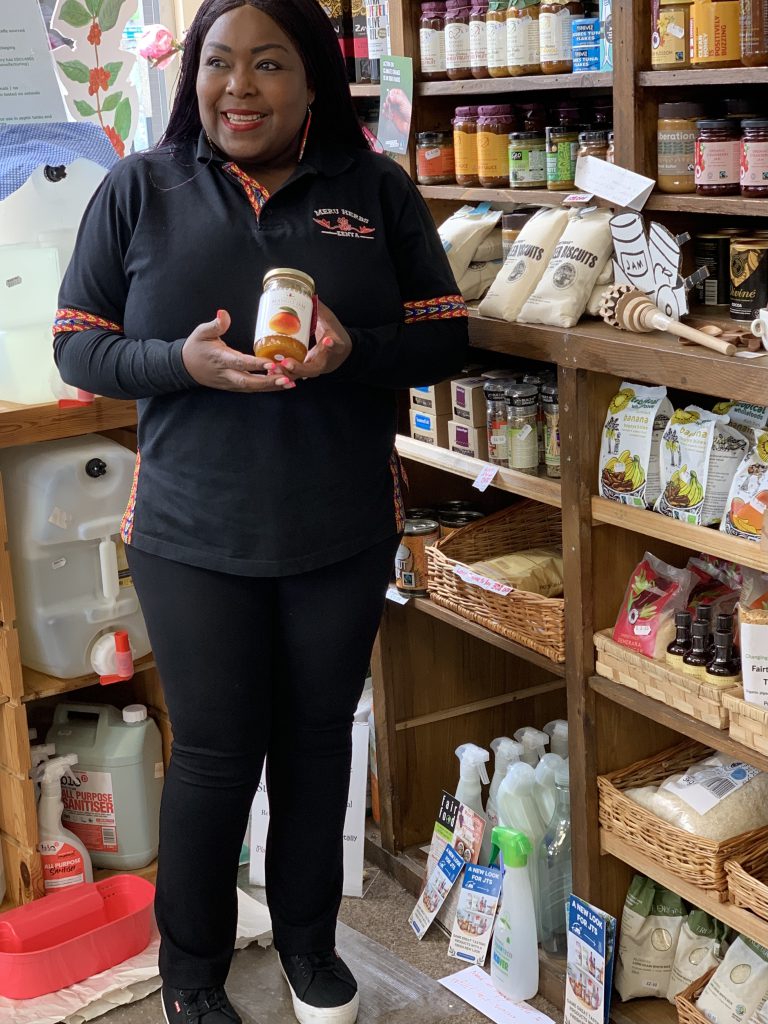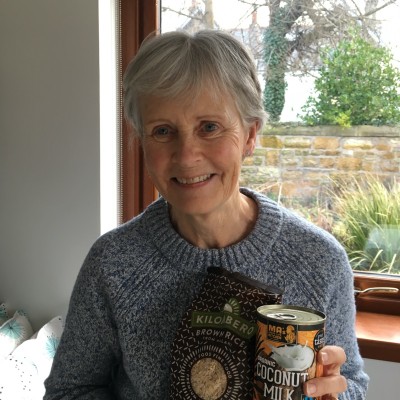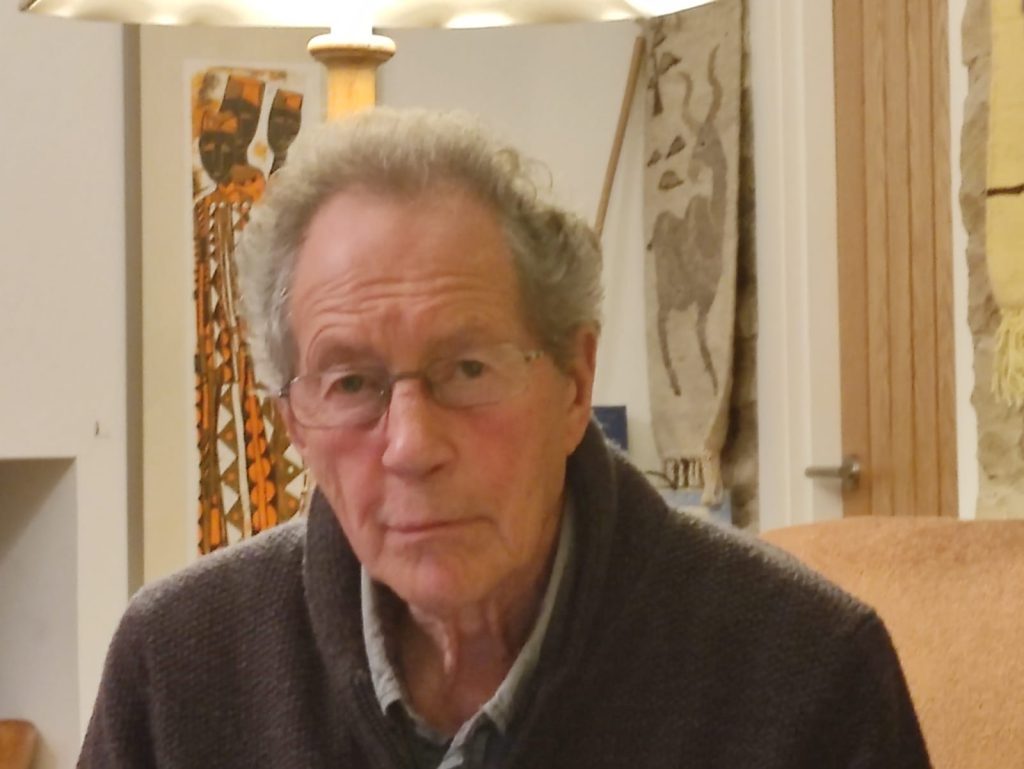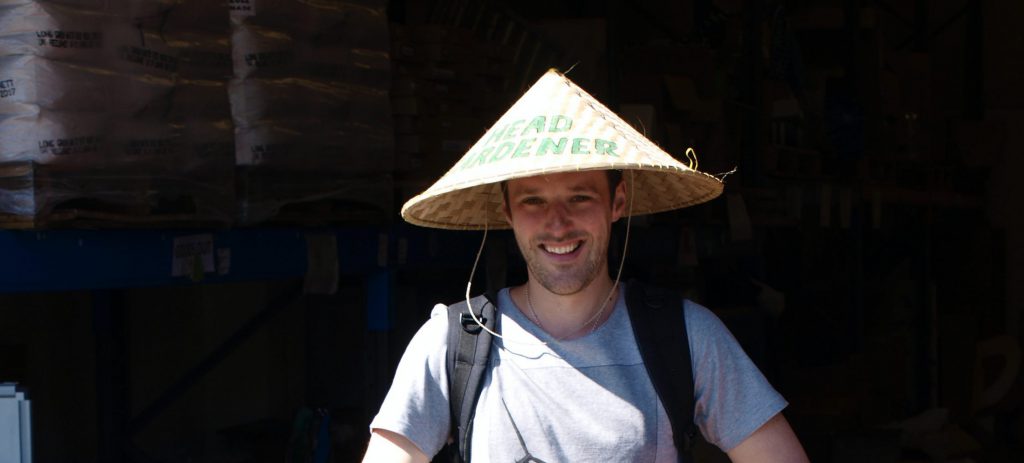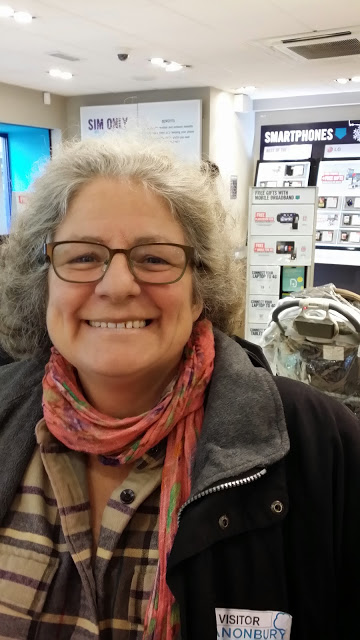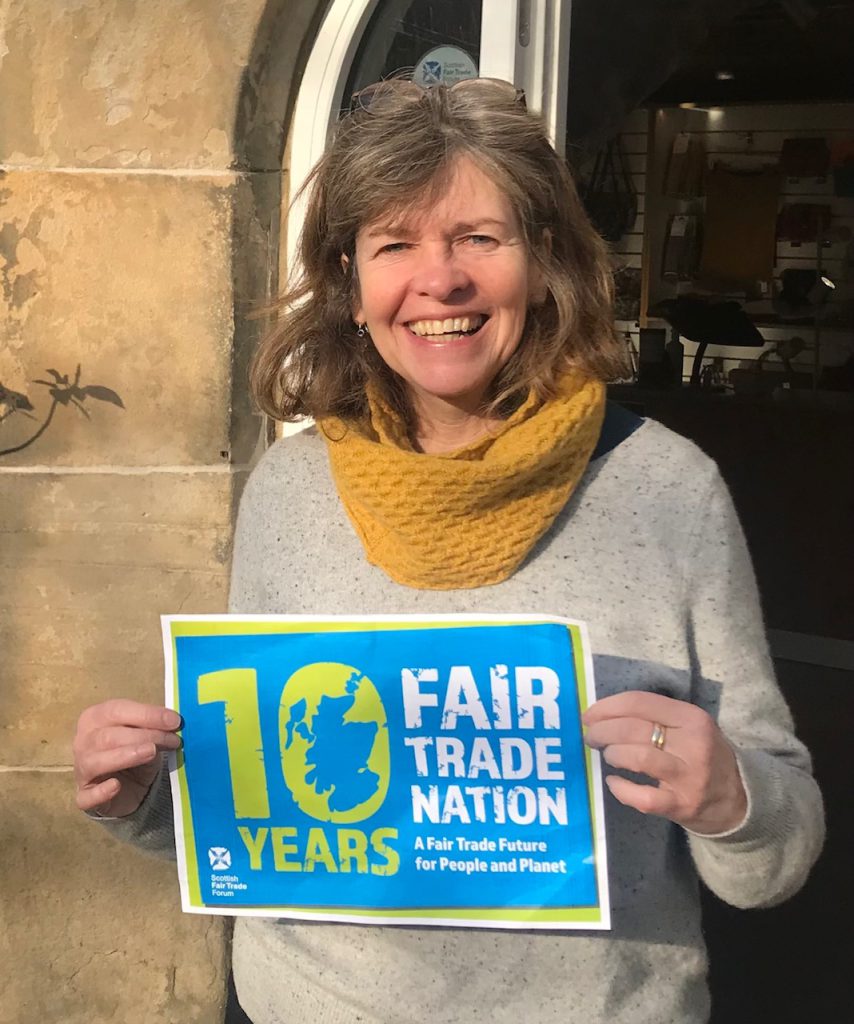
In this episode I am delighted to be talking with Rachel Farey of the One World Shop in Edinburgh. It’s a beautiful shop positioned at the western end of Princes Street in Edinburgh with the historic castle as a backdrop.
Rachel has had an interesting journey that started with working with L’Arche after she left school. L’arche is an international federation of Non-profit organisations working to create networks of community where people with and without intellectual disabilities live and work together. From there she studied theology at Kent University where a friendship took her to Edinburgh and she started volunteering for the fledgling One World Shop. After a few years volunteering and then working for the organisation, she retrained as a religious education teacher and taught for a few years, before finally returning to the shop as manager.
Rachel was involved setting up the British Association of Fair Trade Shops, was chair of the Edinburgh fair trade group, helped set up the Scottish Fair Trade Forum and was part of the team that helped Scotland become recognised as a fair trade nation.
In addition, Rachel has travelled extensively in the Indian subcontinent meeting producers and understanding the difference that fair trade makes to their lives.
Whilst I was chatting with Rachel I was struck by her knowledge of fair trade, the people involved, and the place that Scotland has played in helping producers and farmers across the world. We are fortunate to have people like her on our side!
